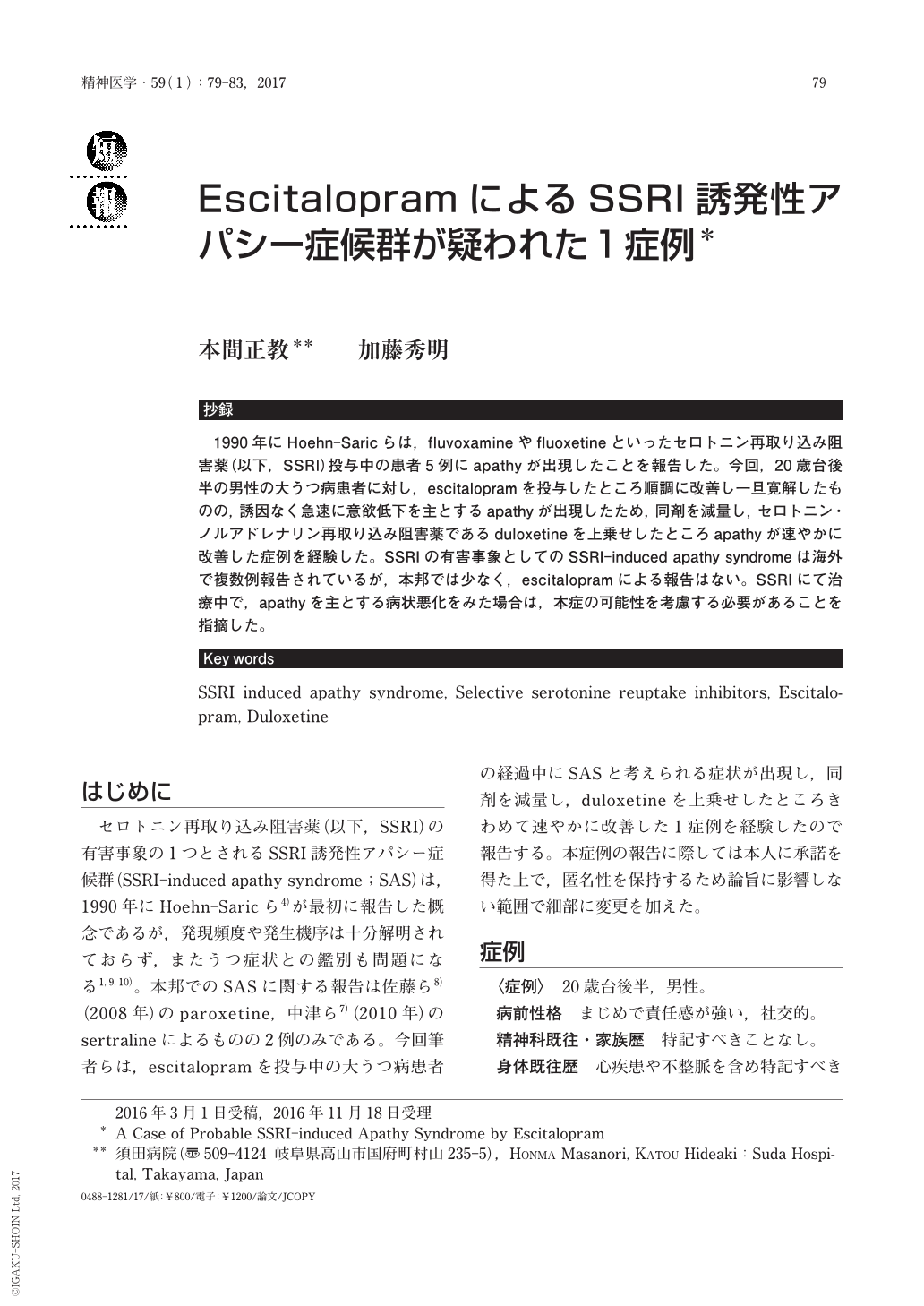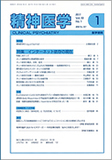Japanese
English
- 有料閲覧
- Abstract 文献概要
- 1ページ目 Look Inside
- 参考文献 Reference
抄録
1990年にHoehn-Saricらは,fluvoxamineやfluoxetineといったセロトニン再取り込み阻害薬(以下,SSRI)投与中の患者5例にapathyが出現したことを報告した。今回,20歳台後半の男性の大うつ病患者に対し,escitalopramを投与したところ順調に改善し一旦寛解したものの,誘因なく急速に意欲低下を主とするapathyが出現したため,同剤を減量し,セロトニン・ノルアドレナリン再取り込み阻害薬であるduloxetineを上乗せしたところapathyが速やかに改善した症例を経験した。SSRIの有害事象としてのSSRI-induced apathy syndromeは海外で複数例報告されているが,本邦では少なく,escitalopramによる報告はない。SSRIにて治療中で,apathyを主とする病状悪化をみた場合は,本症の可能性を考慮する必要があることを指摘した。
In 1990, Hoehn-Saric et al. reported five patients receiving fluvoxamine or fluoxetine, who were observed to develop apathy, indifference and loss of initiative. We herein report a case of a late 20s male patient with major depression who developed apathy with escitalopram reversed by decreasing of escitalopram and addition of duloxetine. In overseas, several reports have been seen that SSRI-induced apathy syndrome (SAS) may be a potential adverse effect of SSRI. However, only two reports of SAS due to paroxetine or sertoraline are observed in Japan. Furthermore, there are no reports of SAS caused by escitalopram. Thus, this report suggests that careful treatment and observation are necessary in using SSRI therapy including escitalopram, especially in case of apathy and insufficient curative course.

Copyright © 2017, Igaku-Shoin Ltd. All rights reserved.


